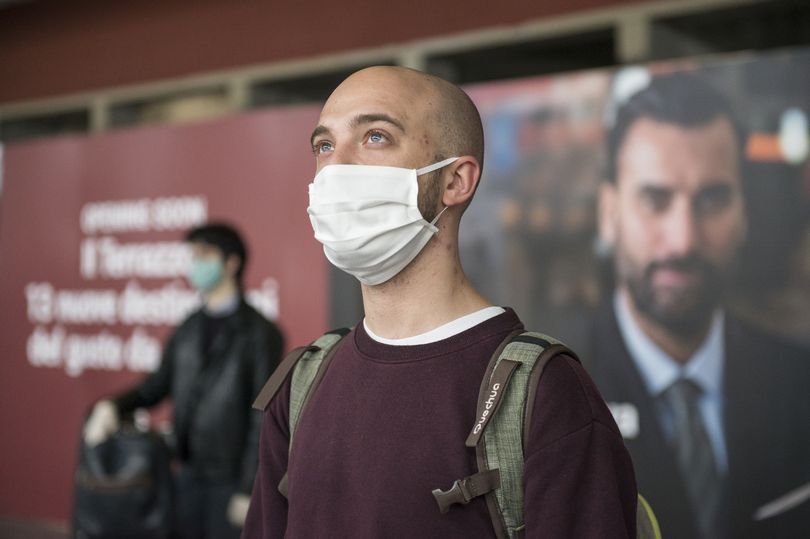I was intrigued to see the US surgeon General demonstrating on TV how to make a cloth mask from an old T-shirt, to protect yourself.
Had he not read the research, I wondered, that says there’s no good evidence that wearing masks in crowded places helps protect you from Covid-19?
Would they protect other people from you? Even Nicola Sturgeon threw in her two pennyworth on that one.
The wearing of masks stems, in part, I think from the false belief that they can take the place of social distancing. They can’t.
The all-powerful CDC (US Center for Disease Control) recommends “face coverings” should be worn in public places to prevent the spread of Covid-19, suggesting using tightly woven cotton fabric, such as quilting fabric, cotton sheets, or T-shirt fabric, a bandana or a coffee filter.
But there’s very little robust research on the use of cloth masks by the general public.
One trial published in BMJ Open in 2015 compared them to medical masks worn by hospital healthcare workers.
The study concluded that healthcare workers “should not use cloth masks as protection against respiratory infection.
Cloth masks resulted in significantly higher rates of infection than medical masks, and also performed worse than the control arm.”
The authors recently updated their previous comments, thus: “There have been a number of laboratory studies looking at the effectiveness of different types of cloth materials, single versus multiple layers and about the role that filters can play. However, none have been tested in a clinical trial for efficacy.”
They concluded: “The evidence is not sufficiently strong to support widespread use of facemasks as a protective measure against Covid-19.
“However, there is enough evidence to support the use of facemasks for short periods of time by particularly vulnerable individuals when in transient higher risk situations.”
Simon Clarke, associate professor at Reading University, said: “There is only very limited evidence of the benefits of wearing facemasks by the general public, no evidence that wearing them in crowded places helps at all and no evidence at all yet related to Covid-19.”
But Ian Jones, professor of virology at Reading University, has said: “If an aerosol droplet hits the weave of the mask fabric rather than the hole it is clearly arrested. And lessening the aerosol dose chips away at the R0 [reproduction number] and helps to slow the epidemic.
“They are not a cure but they address the longer flatter epidemic curve everyone is trying to achieve.”
So a mask might stop you infecting others but it won’t necessarily protect you.

